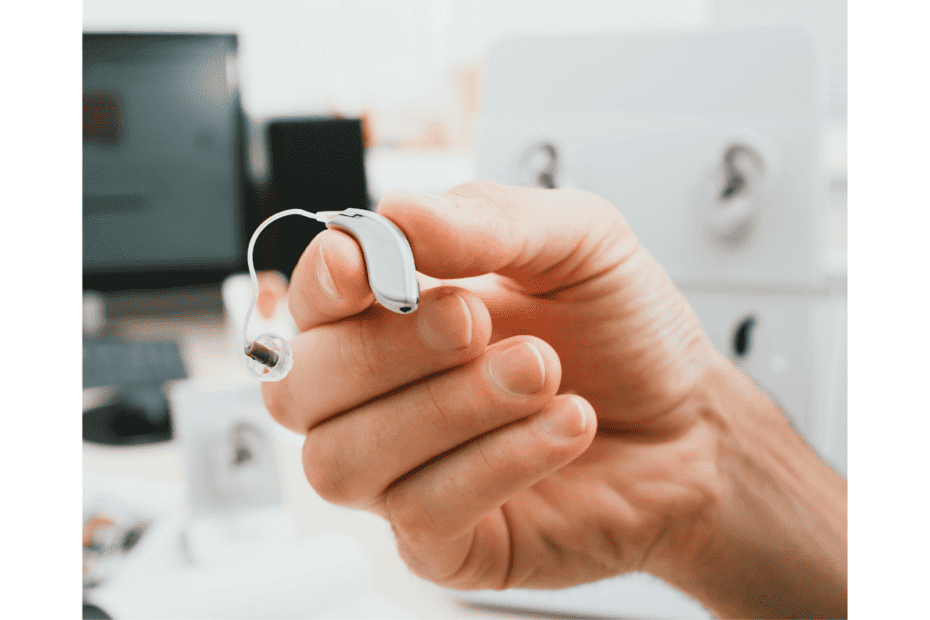As an audiologist, I have encountered countless patients over the years who struggle with hearing loss but resist using hearing aids. While hearing aids have come a long way in terms of technology and design, it’s disheartening to see people make common excuses to avoid using them.
Excuse 1: “Hearing Aids Are Unattractive”
One of the most common excuses we hear is the perception that hearing aids are unattractive or stigmatizing. It’s crucial to understand that the hearing aid industry has made significant strides in improving the aesthetics of hearing aids. Today, they come in various sizes, shapes, and colors, allowing users to choose a style that suits their preferences and blends seamlessly with their appearance. Some are so discreet that they are virtually invisible when worn. Furthermore, embracing hearing aids is a sign of self-care and empowerment rather than something to be ashamed of. It’s time to prioritize your hearing health without worrying about appearances.
Excuse 2: “I Can Hear Well Enough Without Hearing Aids”
Many individuals with hearing loss believe that they can manage well without hearing aids, especially if their condition is mild. However, untreated hearing loss can have detrimental consequences on overall health. Recent research has shown that untreated hearing loss is associated with cognitive decline, social isolation, and an increased risk of accidents and falls. Furthermore, the brain can undergo changes when it is deprived of auditory stimulation, potentially leading to further deterioration of hearing over time. Therefore, even if you feel you can manage without hearing aids, it’s crucial to recognize the long-term risks and consider the benefits of early intervention.
Excuse 3: “Hearing Aids Are Too Expensive”
Cost is a valid concern, but it’s important to weigh it against the long-term benefits of hearing aid use. While hearing aids can be an investment, recent advancements have introduced more affordable options without compromising on quality. Many insurance plans now cover hearing aids, and financial assistance programs are available for those in need. Moreover, the cost of untreated hearing loss, including healthcare expenses related to associated health issues, often exceeds the investment in hearing aids. Remember that hearing aids are not just an expense but an investment in your overall well-being.
Excuse 4: “I Don’t Want to Admit I Have a Problem”
Accepting that you have a hearing loss can be emotionally challenging for many individuals. However, it’s essential to understand that hearing loss is a common age-related condition, affecting millions of people worldwide. Recognizing and addressing it is a brave and proactive step toward improving your quality of life. Recent research has shown that early intervention and acceptance of hearing loss can lead to better outcomes and a higher quality of life. Audiologists and hearing professionals are trained to provide support and guidance throughout this journey, ensuring you are not alone in facing your hearing challenges.
Excuse 5: “Hearing Aids Are Complicated to Use”
Advancements in hearing aid technology have made them more user-friendly than ever before. Many modern hearing aids are equipped with features such as automatic adjustment, smartphone compatibility, and easy-to-use controls. Audiologists provide comprehensive training and ongoing support to help patients adapt to their hearing aids comfortably. With a little patience and guidance, you can quickly become proficient in using your hearing aids to enhance your hearing experience.
The Future of Hearing Health
As we look ahead, it’s essential to consider the exciting advancements in hearing loss prevention, diagnosis, and management. Researchers are exploring futuristic interventions that may revolutionize the field of audiology.
Gene Therapy
Genetic factors play a significant role in hearing loss. Researchers are actively working on gene therapies that could potentially prevent or even reverse some forms of hereditary hearing loss.
Cochlear Implants
Ongoing advancements in cochlear implant technology offer the promise of even better hearing restoration for those with severe hearing loss.
Telehealth and Remote Monitoring
The COVID-19 pandemic accelerated the adoption of telehealth services. Audiologists can now provide remote monitoring and adjustments for hearing aids, making it easier for patients to receive care from the comfort of their homes.
Early Detection: The Key to Preserving Hearing Health
In conclusion, the most crucial message I can convey is the paramount importance of early detection and intervention in hearing loss. Regular hearing screenings, especially for individuals over the age of 50, can catch potential issues before they become more severe. By addressing hearing loss promptly, you can significantly improve your quality of life, maintain cognitive health, and stay socially connected.
It’s time to let go of common excuses and embrace the future of hearing health. Today’s hearing aids are discreet, effective, and user-friendly. They can make a remarkable difference in your life, allowing you to enjoy the sounds of the world around you. Remember that seeking help for hearing loss is an act of self-care and empowerment. Don’t let excuses hold you back from experiencing life to the fullest. Reach out to a hearing professional, get your hearing tested, and take the first step towards a brighter, more vibrant future of sound. Your hearing health matters, and there’s no better time to prioritize it than now.

